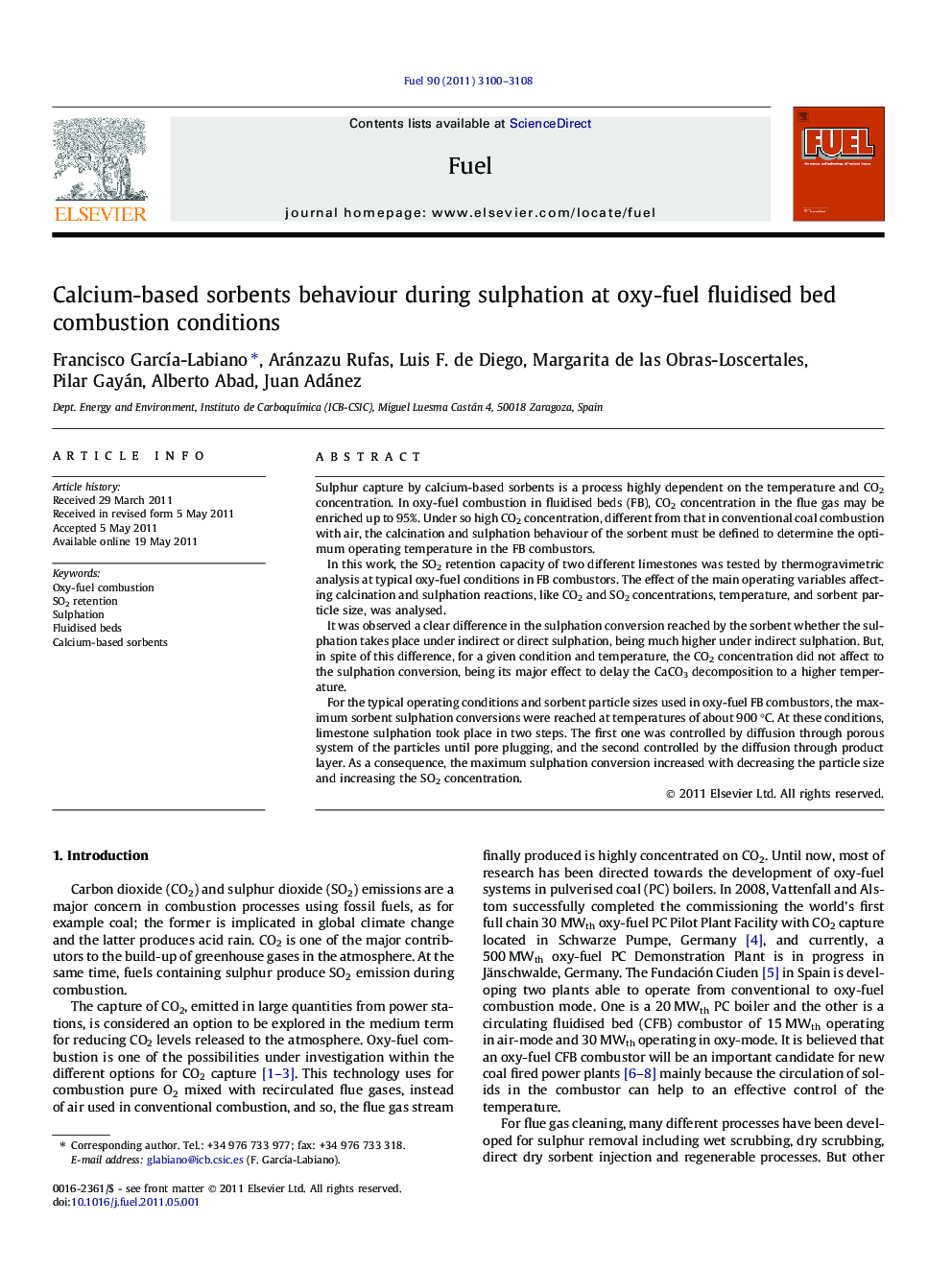| Article ID | Journal | Published Year | Pages | File Type |
|---|---|---|---|---|
| 206432 | Fuel | 2011 | 9 Pages |
Sulphur capture by calcium-based sorbents is a process highly dependent on the temperature and CO2 concentration. In oxy-fuel combustion in fluidised beds (FB), CO2 concentration in the flue gas may be enriched up to 95%. Under so high CO2 concentration, different from that in conventional coal combustion with air, the calcination and sulphation behaviour of the sorbent must be defined to determine the optimum operating temperature in the FB combustors.In this work, the SO2 retention capacity of two different limestones was tested by thermogravimetric analysis at typical oxy-fuel conditions in FB combustors. The effect of the main operating variables affecting calcination and sulphation reactions, like CO2 and SO2 concentrations, temperature, and sorbent particle size, was analysed.It was observed a clear difference in the sulphation conversion reached by the sorbent whether the sulphation takes place under indirect or direct sulphation, being much higher under indirect sulphation. But, in spite of this difference, for a given condition and temperature, the CO2 concentration did not affect to the sulphation conversion, being its major effect to delay the CaCO3 decomposition to a higher temperature.For the typical operating conditions and sorbent particle sizes used in oxy-fuel FB combustors, the maximum sorbent sulphation conversions were reached at temperatures of about 900 °C. At these conditions, limestone sulphation took place in two steps. The first one was controlled by diffusion through porous system of the particles until pore plugging, and the second controlled by the diffusion through product layer. As a consequence, the maximum sulphation conversion increased with decreasing the particle size and increasing the SO2 concentration.
► Long term sulphation tests of limestones at oxy-fuel FBC conditions. ► Sulphation in two steps with important residual activity at long operation times. ► Higher sulphation conversions under calcining conditions. ► Optimum sorbent sulphation in oxy-fuel FBC conditions at 900 °C.
